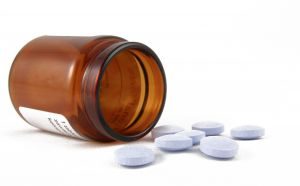In Massachusetts, when a person is arrested for drunk driving, following a serious drunk driving accident, the official name of the criminal charge is operating under the influence of intoxicating liquor or drugs. The liquor part is used to include to any beverage that includes ethanol, which is the form of alcohol that humans consume in alcoholic beverages. There are other types of alcohol used for industrial and medical purposes like isopropanol, but that is made from wood, and while people have drunk it, and it will cause intoxication, it is very detrimental to your health.
 As far as the drugs part of the charge goes, that can include any substance that causes intoxication, but generally means prescription drugs or illegal street drugs. However, there have been drugged driving accidents where people are intoxicated from huffing gas or other toxic chemicals.According to a recent news article from The Register Herald, drugged driving and drugged driving accidents are increasing in numbers, but Mothers Against Drunk Driving (MADD) is still primarily focusing on drunk driving. The reason for this is because MADD has stated that drunk driving, and not drugged driving, is the primary reason for traffic fatalities in the U.S.
As far as the drugs part of the charge goes, that can include any substance that causes intoxication, but generally means prescription drugs or illegal street drugs. However, there have been drugged driving accidents where people are intoxicated from huffing gas or other toxic chemicals.According to a recent news article from The Register Herald, drugged driving and drugged driving accidents are increasing in numbers, but Mothers Against Drunk Driving (MADD) is still primarily focusing on drunk driving. The reason for this is because MADD has stated that drunk driving, and not drugged driving, is the primary reason for traffic fatalities in the U.S.
As our Boston drunk driving accident attorneys can explain, it doesn’t matter whether a defendant was under the influence of drugs or alcohol when he or she caused a serious or even fatal car accident. This is because driving drunk and driving while on drugs are both examples of negligent conduct. When we say negligent conduct, we mean it in the legal sense, as negligence is the basis for the clear majority of car accident lawsuits filed in Boston and the rest of the country.
To prove a lawsuit under a theory of negligence, plaintiff must establish that defendant owed a duty of due care to plaintiff. He or she must then prove defendant breached that duty of due care owed to plaintiff. This is the next of four elements of causation. Plaintiff must prove that defendant’s breach of his or her duty of due care owed to plaintiff caused damages to plaintiff. Damages is the fourth element in a negligence drunk driving lawsuit. Causation can be further broken down in to actual and proximate causation.
One thing to keep in mind is that many defendants who cause an accident while on a prescription narcotic or other controlled substances like a benzodiazepine such as Xanax, will try to defend their negligent conduct by arguing that they had a valid prescription for the drug so they could take it. However, while having a prescription for a controlled substance means that you are allowed to take the drugs and possess them, it does not mean that you are allowed to take them and then drive a car when under the intoxicating influence of the drugs. This is analogous to alcohol. There is no law preventing a person who is over the age of 21 from drinking or possession of alcohol, but it is still illegal to drink and drive, so this is not a defense in criminal court or in a drunk driving car accident lawsuit.
If you or someone you love has been injured a Boston drunk driving accident, call for a free and confidential appointment at (617) 777-7777.
Additional Resources:
Drugged driving up, but MADD still targets drunk drivers, May 8, 2017, By Michelle Dillon, Register Herald
More Blog Entries:
Boston Courts Deal with Issue of Drivers Alleged to Be On Marijuana, Feb. 13, 2017, Boston OUI Injury Lawyer Blog
 Boston Drunk Driving Accident Lawyer Blog
Boston Drunk Driving Accident Lawyer Blog

